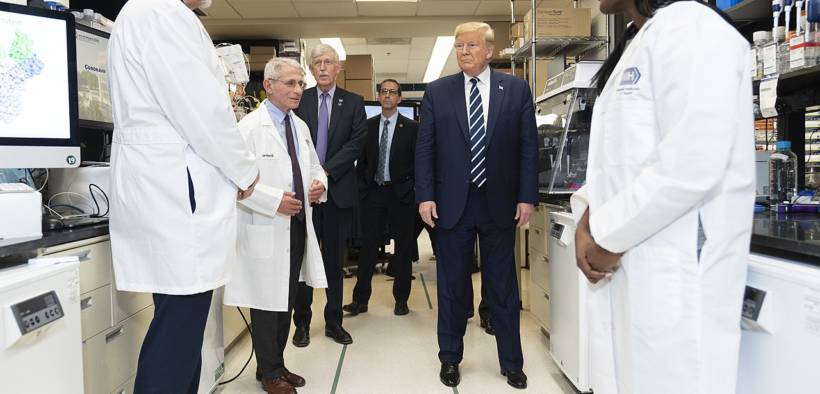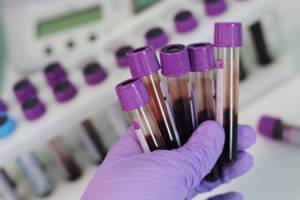Shark Tank Initiative: Combatting COVID-19, Part 5: Seroprevalence & All of Us

This is part 5 of a multi-article series about the COVID-19 Shark Tank initiative, focusing on seroprevalence and serosurveillance. Click here to read the previous articles , Part 1, Part 2, Part 3, Part 4
Antibody Testing
The most recent endeavor, another diagnostic innovation initiative, involves the National Cancer Institute. Supported by Congressional funding and using its expertise in virology, immunology and lab medicine, the NCI will evaluate and improve serology testing. This will help identify the percentage of the population with COVID-19 antibodies, and COVID-19’s seroprevalence. As with all diagnostics, these tests must be accurate, and Dr. Francis Collins (NIH) notes that the tests are indeed becoming increasingly reliable. While not actually part of the Shark Tank initiative, antibodies and seroprevalence became an important topic of discussion.
The Role of Antibodies
We still do not know for certain whether people with prior infections and positive antibodies possess resistance to reinfection, and if so, for how long. The NIH studies these questions intensively through the Congressionally funded All of Us study. The availability of this information will better inform scientists’ understanding positive antibody tests.
Senator Bill Cassidy (R-LA) remarked that if similar to the flu, COVID-19 antibodies might confer full immunity in some people, merely mitigate symptoms in others and offer no benefit to the remainder. Furthermore, it could take three years or longer to fully understand what benefit, if any, the antibodies confer. He asked if they suggest legislators wait for absolute certainty surrounding this issue before making policy decisions.

COVID-19
Evidence of Immunity
Dr Collins responded that we know the immune system, in most cases, recognizes and eradicates COVID-19. People recover to a point that, after some time, the virus becomes undetectable. He said this indicates that the immune system knows how to fight it. However, they have observed that COVID-19 can and does mutate, though not in the same way as influenza. At this time, they don’t know how to answer many “fundamentally important questions.” Are reinfections possible? A few cases of reinfection have occurred, but in his mind, “they’re not incredibly convincing.” We can’t know right now whether immunity lasts for three, five or ten years.
Senator Cassidy then discussed the evidence, from rhesus monkeys, that antibodies are protective. Furthermore, research regarding SARS-CoV-1 has indicated that immunity to that virus may last 18 years. Therefore, it would seem scientific evidence points in the direction of immunity-providing antibodies. Dr Collins agreed that evidence does indeed point in that direction, so they hope to find the same with SARS-CoV-2. However, he cautions, “until we know, we will need to know.” Senator Cassidy followed up by inquiring, “What is defined as knowing? Knowing might not be for one or two years, and we have to make policy decisions.”
The All of Us Study
At the present time, Dr Collins believes, experts and the public should regard any extrapolated meaning from positive antibody tests with caution. It will help if any patients with positive antibody tests become re-infected over the course of the next six months. This would provide an early warning sign. Senator Cassidy asked if Dr Collins is suggesting that “we not only test, but also track, subjects with positive antibodies.” Dr. Collins replied, “with their appropriate consent.” This is where the All of Us study comes in. He noted that at the current time, the study has enrolled three-hundred-fifty thousand Americans who have pre-consented to this kind of follow-up. The All of Us study aims to enroll 1 million subjects.
Shouldn’t We Just Let it Run its Course?
Senator Mitt Romney (R-UT) noted the conflicting data floating around about antigen and antibody testing. In particular, he called attention to reports that testing in New York suggests over 20 percent of the population has already contracted COVID-19. Tests in prisons and five southern states suggest 93 percent of people who tested positive never had any symptoms. He then mentioned Sweden’s experience and their decision not to test the entire population, to let herd immunity develop and allow the economy to keep running. The senator from Utah questioned whether we really need to conduct testing on this scale given current knowledge. The Department of Homeland Security’s data suggests between 50 and 90 percent of people who contract COVID-19 are asymptomatic. If this is in fact the case, should we just let it run its course through the population and not attempt to test every American.
Dr Collins agreed data seems to indicate that many people with COVID-19 are asymptomatic, and that perhaps 60 percent of new cases are transmitted by asymptomatic people. That said, tens of thousands of Americans have died. The infected may not always suffer from it, but can pass it on to the vulnerable, who may die. He noted that sometimes young people also die. COVID-19 is an extremely unusual virus with its ability to produce so many asymptomatic carriers. It’s something that experts haven’t encountered before. None of this refutes the fact that COVID-19 is a “terribly dangerous virus” for those who get very sick, end up in ICU and even die.” From his perspective, the only way to put a stop to it is to identify the asymptomatic, quarantine them and contract trace, calling it “Good solid shoe-leather public health.”








